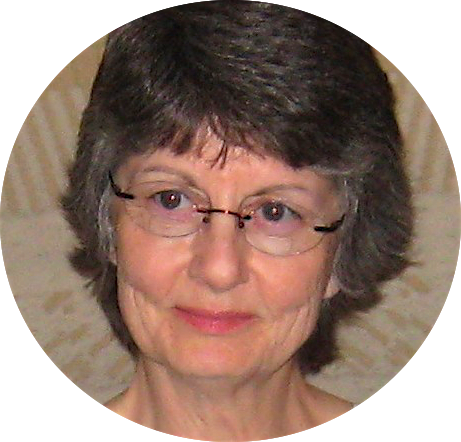by Sheryl Morris, CPS Partnership Community
“… what human beings so passionately want and need: the fulfillment of truly loving and equitable intimate relations based on mutual respect, caring, and trust.” —Riane Eisler, Sacred Pleasure
 One reason Riane Eisler’s messages resonate with me so strongly is the connection I also have with the Montessori early childhood teaching philosophy and the influences from voices in the broader arena of “holistic” education. I envision more partnerships forming between the various holistic-based education systems, such as Montessori, Waldorf, Reggio, etc.; one basic tenet of these approaches is respect for the child. I had the opportunity to study the Montessori system, so it is from this background to which I can best speak.
One reason Riane Eisler’s messages resonate with me so strongly is the connection I also have with the Montessori early childhood teaching philosophy and the influences from voices in the broader arena of “holistic” education. I envision more partnerships forming between the various holistic-based education systems, such as Montessori, Waldorf, Reggio, etc.; one basic tenet of these approaches is respect for the child. I had the opportunity to study the Montessori system, so it is from this background to which I can best speak.
I’d like to share a few points that show why I find the Montessori philosophy so meaningful. Educators entrenched in Domination social systems often assume that the child has nothing to offer the adult, and that the child is an “empty vessel waiting to be filled with our knowledge and experience.” These are false assumptions. If allowed, a child will reveal themselves, and will reveal their inner impulses. They will become self-directed and do their own research. A child has much to offer; and to understand this, the adult needs to learn to observe and follow the child.
Adults often do too much for a child out of love, not realizing how hurtful this can be in the long run. The parallels, here, between Montessori?s philosophy and those of Jane Nelsen (Positive Discipline) are of interest. When a child can do something for them-selves but an adult steps in to do it for them, the child is being robbed of the chance to build self-confidence and the sense that they are the master of themselves and their world.
And, in regard to misbehaving children, Nelsen writes: “Where did we ever get the crazy idea that in order to make children do better, we must first make them feel worse? Power to impose suffering is a common mistake made by many parents and teachers— so much so that they often lose sight of their primary goal of inspiring children to improve their behavior.” (Nelsen, 1996).
For me true moral values cannot come entirely from acquiescence or submission to an all knowing, omnipresent being. And for however closely Maria Montessori followed her faith of Catholicism, she also professed a strong belief in the freedom and responsibility of people to determine their own development through acts of will. Her idea that aesthetics and moral education are closely connected with the training of the senses is profound. She observes:
…By multiplying sense experiences, giving order to them, and developing the ability to evaluate the smallest differences in various stimuli, one’s sensibilities are refined and one’s pleasures increased. Beauty is found in harmony, not in discord; and harmony implies affinities, but these require a refinement of the senses if they are to be perceived. (Montessori, 1967).
In a troubled world, I find hope in her words:
Within a space of three months, the child who was [reluctant to speak], learns to use easily all the varied forms of the noun, suffixes, prefixes and verbs …So, we ourselves may take courage from the child?s example, and be willing to wait. From the stagnant periods of history, we may always hope that progress will come. Perhaps the foolishness of man is less than it seems. Wonderful things for the future may lie waiting for explosions in the inner life, which is hidden from us. (Montessori, 1995).
Last, let this be a call to all holistic educators to share their knowledge beyond their own school communities, as widely as possible, into their larger communities.
Sheryl Morris is a grandmother and retired Montessori teacher. She was introduced to the work of Riane Eisler in the “Meetings With Remarkable Educators” podcast. Contact Sheryl: espoir@cableone.net
Resources
CPS Early Childhood Education Resources
Nelsen, J. (1996). Positive Discipline. New York: Ballantine Books.
Montessori, M., (1967). The Discovery of the Child. New York: Random House Publishing Group.
Montessori, M. (1995). The Absorbent Mind. New York: Henry Holt and Co.





I began my passion for education with Montessori and have since explored other holistic educations and holistic educators. I hope in some way to inspire others to look into this somewhat nebulous term within the context of education.
Happy to see the new story about John Creger at CPS. He was one of several teachers interviewed for the “Meetings With Remarkable Educators” podcasts which are still available on line. So, too, this happens to be where I learned of Riane Eisler and her work! Ron Miller as well. You’ll have to check out the podcasts as there are several memorable interviews/transcripts with educators important to know about. (Link to the podcasts and transcripts.) https://www.remarkable-educators.com
John Creger talks about being influenced by James Moffett who wrote “The Universal Schoolhouse” which has become a focal point of mine. I wish this book itself had its own presence online in form of a website and or Facebook page.
Page xvi
“Each community should organize a totally individualized, far-flung learning network giving all people of all ages access to any learning resource at any time. Nothing is required, but everything is made available. Users make the decisions but avail themselves of constant counseling by a variety of parties. The very concept of schools, classes, courses, exams, and curriculum is superseded. Subjects and methods are reorganized around individual learners forging their personal curricula in interaction with others doing the same across a whole spectrum of learning sites, situations, and technologies. This is what I am calling the universal schoolhouse.”
Any time I write about the ways education might evolve to serve all and everyone’s own unique gifts I include several educators like Riane Eisler, John Creger, James Moffett, and Ron Miller. “Thank you,” to them and to so many more!